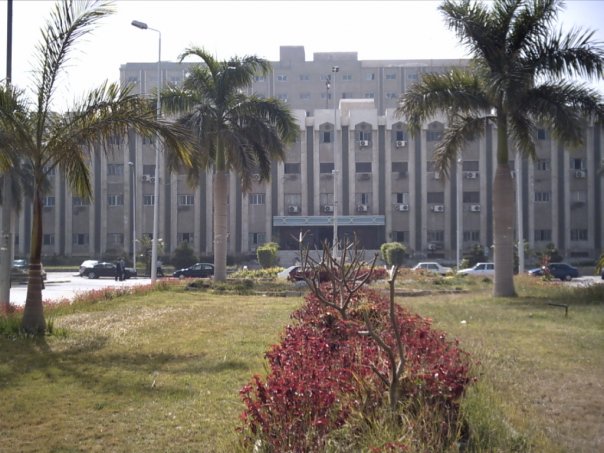The 18 December revolution in Sudan promises new realities in the African country, where it overthrew the dictator Omar Al-Bashir and a long period of repression which began with the Muslim Brotherhood coup in 1989.
Al-Bashir’s 30-year kleptocracy has been marked by famine, civil war, and the detention of thousands and torture in the so called ‘ghost houses,’ and the firing of thousands of civil servants under the claim of the public good, in addition to killing thousands of people in massacres described in international reports as genocide in Darfur, which ignited the civil war in Kordofan and the South of the Blue Nile.

The authorities also suppressed a number of peaceful uprisings in a brutal manner. The uprising of 2013 led 200 people to lose their lives, with the latest uprising where 54 Sudanese were killed, and 700 more were injured were both only chapters.
Despite the unanimous opinion that the revolution has achieved victories to overthrow the regime of Omar al-Bashir, but to what extent? The debate over the revolution putting an end to the rule of the Brotherhood in Sudan continues.
One of the dangers that strongly exists faces in Sudan now: that this revolution itself might present an opportunity to the Brotherhood to reproduce a newer version of their Brotherhood’s rule to replaces the old one, waiting only for the doors after the end of the transitional period, for many reasons:
The Sudanese revolution since its outbreak on 18 December focused on expressing public rejection toward Bashir’s rule with its repression, failures, violations, and chaos. It, however, did not focus on the Brotherhood’s cover for this rule and avoided going into a battle to liquefy the religious state to defer division. However, the main forces leading the revolution, such as the Professionals Association of Sudan and the Forces of Freedom and Change-as leaders-advocate for a modern state.
The Brotherhood’s experience in Sudan is evasive and misleading, which is different from their traditional edition. The Sudanese Brotherhood does not include a supreme ruler, an international organisation, or obedience. It also does not stand on emotional isolation. It created a camouflage to prevent the leftists and the liberals from pointing fingers against them as a radical movement in an attempt to produce a narrative which looks, even superficially, sympathetic with women, the modern state, and art. Once they came to power, this cover was disregarded, especially prior to 1999, as they opened ghost houses to torture opposition and hosted Osama Bin Laden and were involved in the failed assassination of Hosni Mubarak.
But there is a sector of the Brotherhood which opposed al-Bashir and stood with the revolution from day one. This section includes some of the National Congress Party. They refused the leadership moves of Aly El-Hag and Ibrahim El-Senousy who sided with Bashir. The Brotherhood-Al-Sadek Abdel Maged’s movement is the traditional brotherhood group which refused to walk the path of Hassan Al-Turabi, in addition to Reform Now led by dissident Ghazi Salah Al-Din, and the Coordination for Change which includes five Islamist streams siding with the revolution and led by Mahboub Abdel Salam and Shafei Mohamed. This opposition sector, came out in the revolution, and were arrested, leaders were killed, such as Mohamed Kheir, hence, it will form the biggest challenge, with the return of democracy, in imposing the Brotherhood variable in the equation. It could also become the back door to return the comprehensive Brotherhood idea to take control if no guarantees are in place in the framework of democracy.
On the other hand, another segment of the Brotherhood which is led by the uncle of al-Bashir named Tayeb Mostafa, who is an extremist who slaughtered sheep and danced to music when South Sudan separated in celebration of Muslim Sudan ridding the ‘southern infidels and Christians’. This segment is also led by the Salafist imam Abdel Hay Youssef, who is reported to be involved in burning Christian books at the book fair in Khartoum University. They are accompanied by many of the radicals of the al-Bashir’s National Congress party and the Islamist movement.
There is the deep state rooted in the old administrative apparatus, its institutions, economy, and media. This deep state is not ideologically Brotherhood-leaning, however they were aligned with the regime for pragmatic reasons. To understand the dangers of this state, we should be aware that it was rooted in the days of Jaafar an-Nimeiry through the economy and Sharia laws when Islamists took over the rule in the past years then continued its influence in the third democracy after 1985, before the 1989 coup.
For all these reasons, the danger of the Brotherhood’s rise to power in Sudan is very likely, however, this can be prevented by some steps:
Lengthening the period of transitional rule to four years or more to become enough to birth and enrich civil parties that can compete against the brotherhood.
Establishing a comprehensive purge for the Brotherhood ideology in the state, and administrative apparatus.
Establishing a cultural revolution which will raise awareness of the dangers of a religious state and its atrocities and its threat to the future of Sudan along with its relationship with its neighbours, brotherly countries, and the international community.
With these points alone, a roadmap can be devised against the rescue project, which only overthrew the state. Otherwise, the alternative would be a more pessimistic scenario for Sudan and for the whole region.
Khaled Mahmoud is an Egyptian journalist, expert on African studies.


